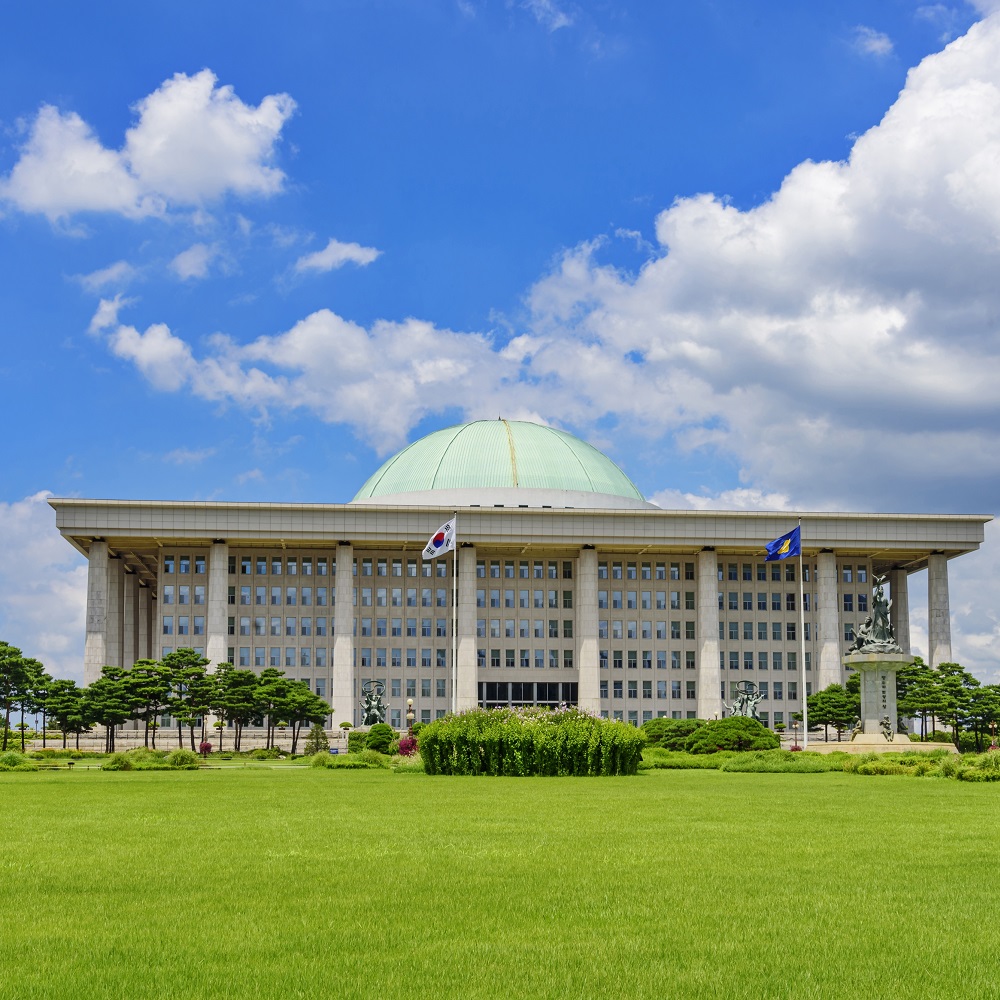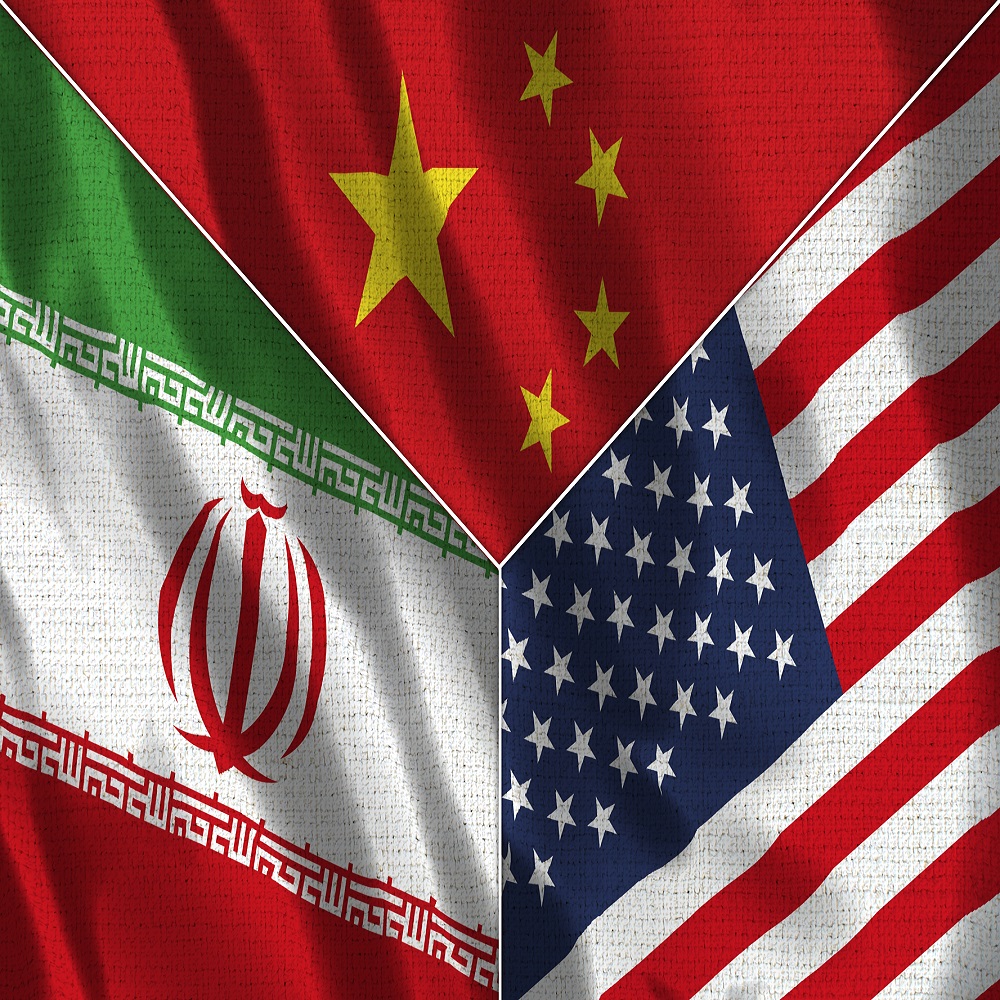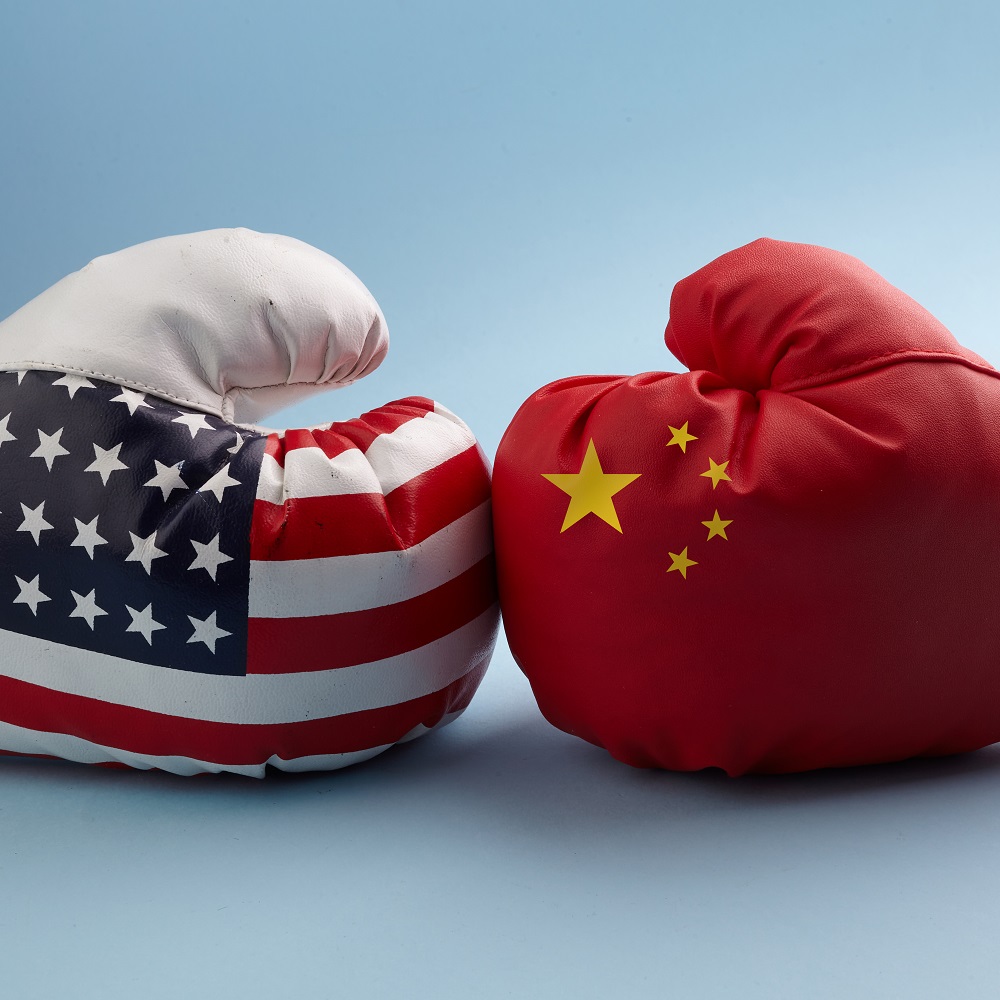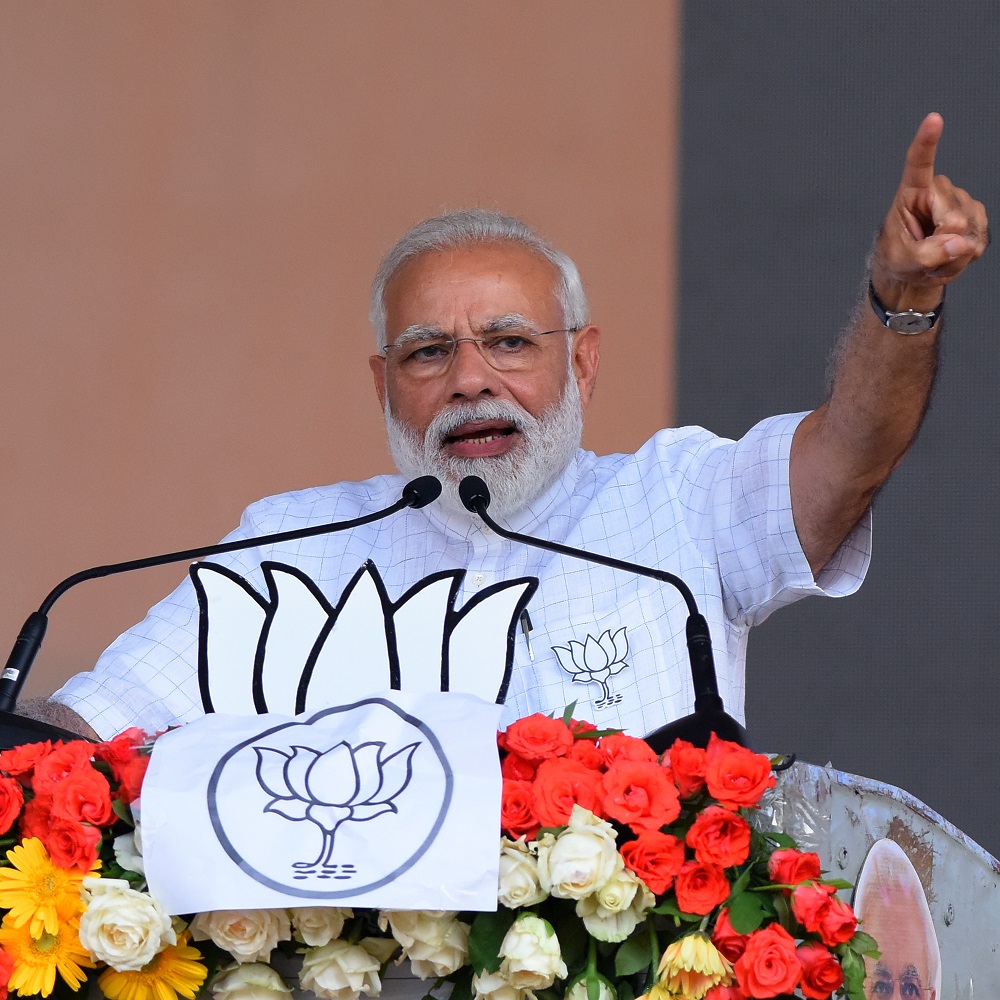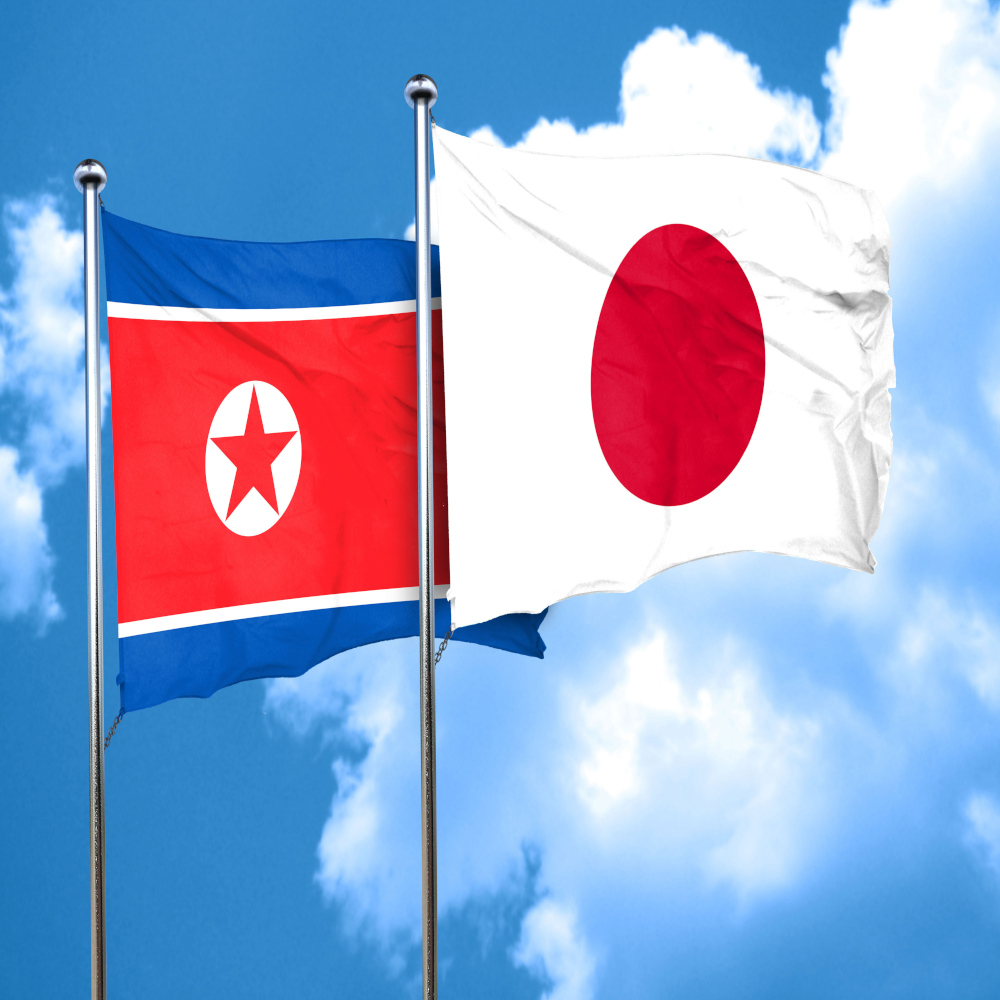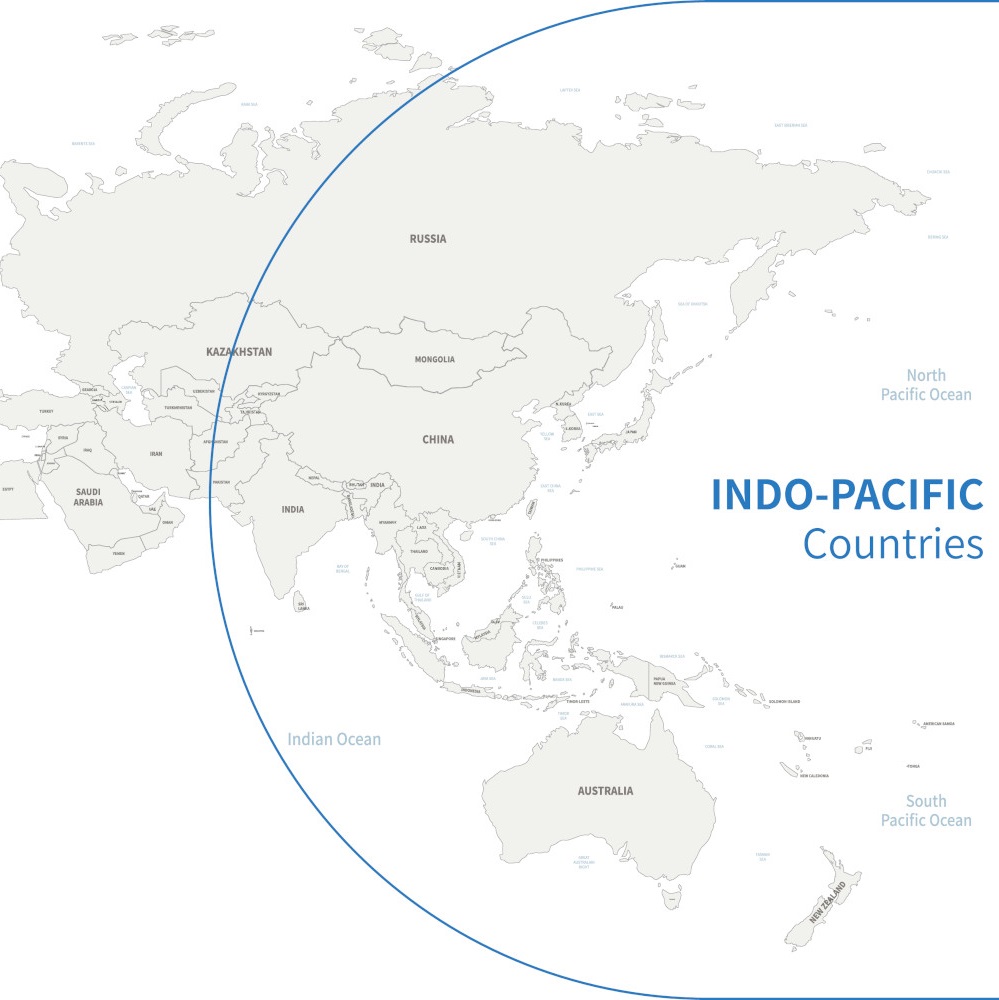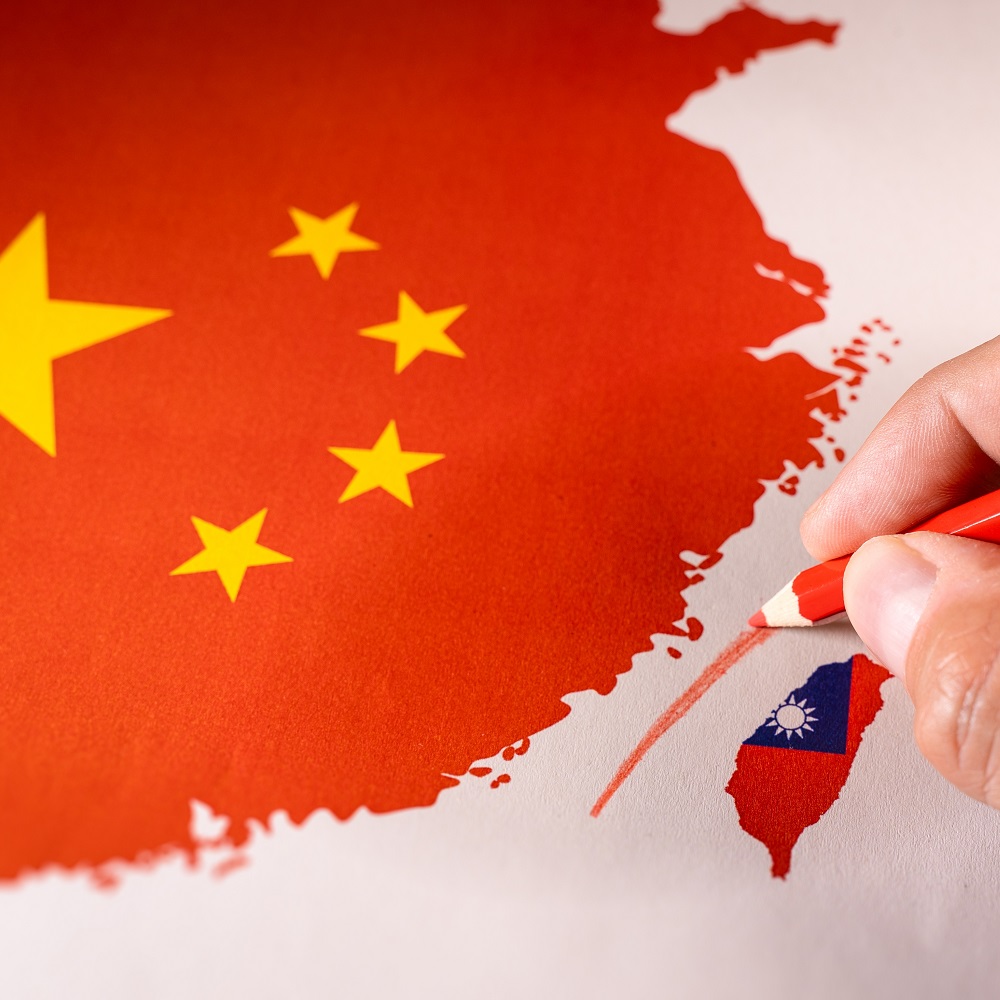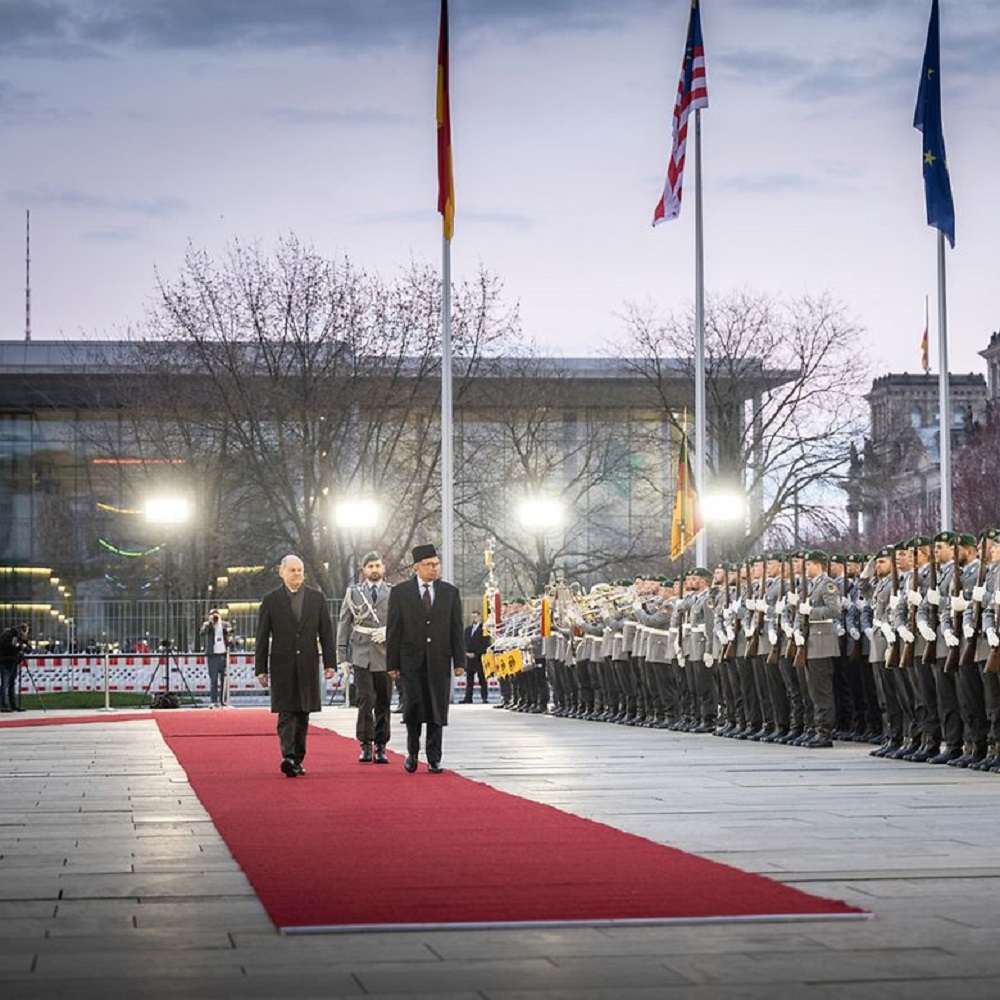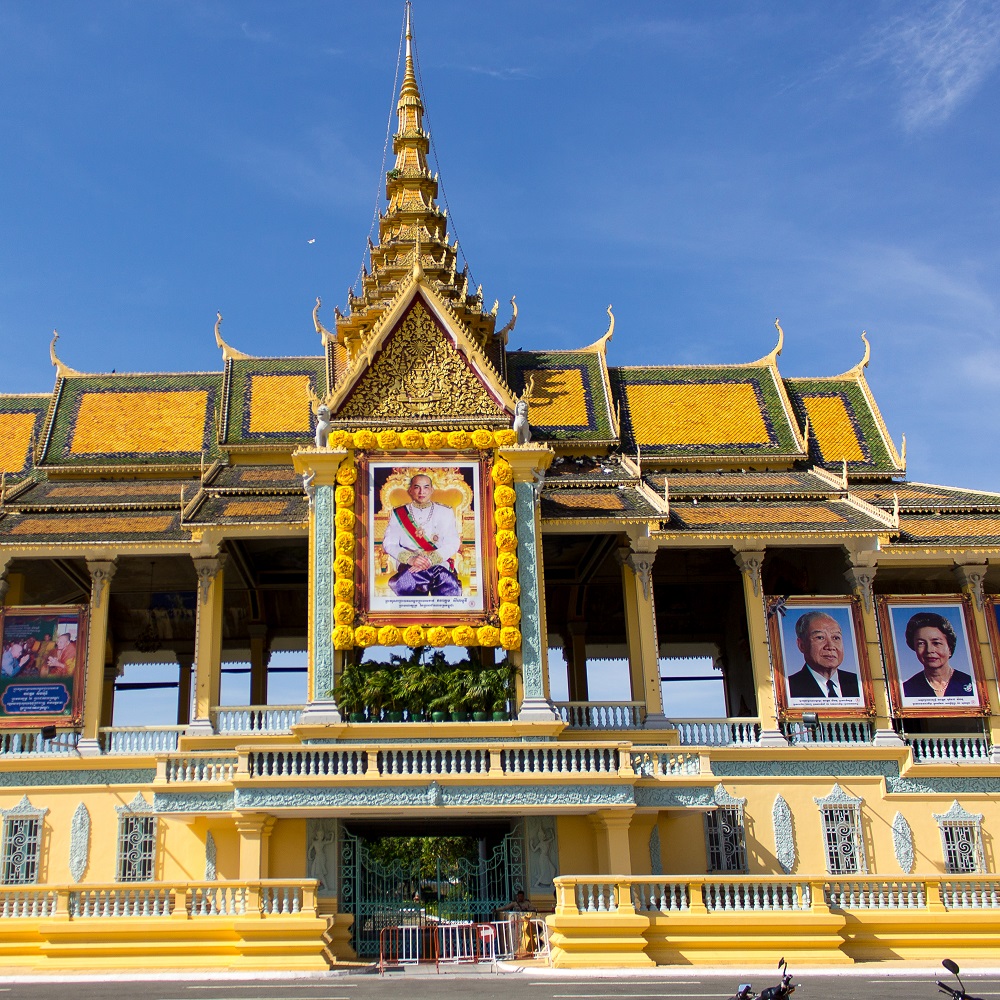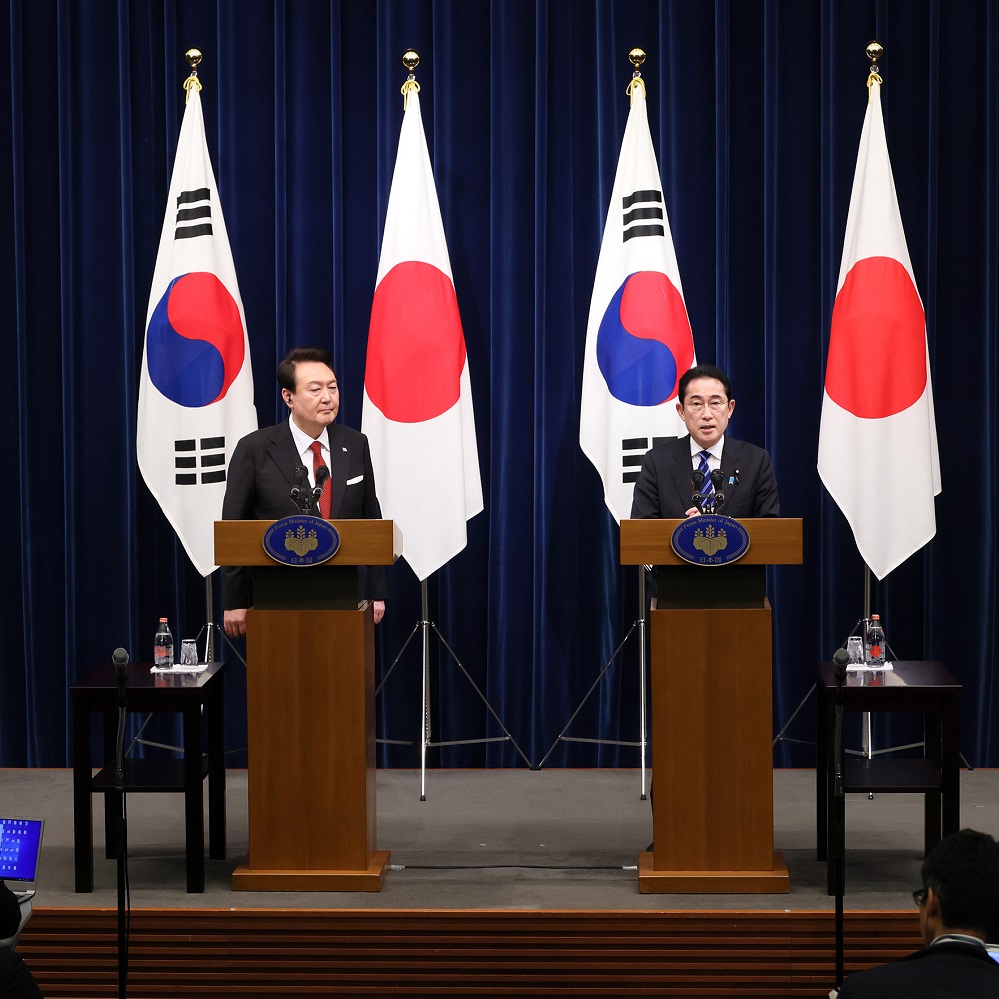Iran’s Strategies in Response To Changes in US-China Relations
by Sara Bazoobandi
Bazoobandi, S. Iran’s Strategies in Response to Changes in
US-China Relations. Middle East Policy. 2024;31:120–132. https://doi.org/10.1111/mepo.12727
Abstract
The dynamics of the relationship between the United States and China have been shifting. This has prompted changes in strategic calculus and policy adoption by the friends and foes of each side. Iran, given its decades-long links with China, has made several. First, it has deepened its ties with the Asian power beyond collaboration in business and trade. Second, it has revised its policies in the Gulf region to be a part of what it sees as China's network of influence, hoping to better position itself in a multilateral global order. Third, it has been seeking opportunities to project power through showing off its military capabilities in Ukraine. This article examines these strategic responses and concludes that Iran has been pursuing an agenda in line with the world vision of its senior leaders. The end goal for Tehran is to gain more power and relevance in the global strategic calculus. This analysis is part of a special issue examining the responses of Gulf countries to rising Sino-American competition, edited by Andrea Ghiselli, Anoushiravan Ehteshami, and Enrico Fardella.
Over the past decade, the relationship between China and United States has been going through fundamental changes.1 “Engagement, cooperation, and convergence,” previous pillars of the ties between the world's largest economic powerhouses, have been replaced by the trade war between Beijing and Washington.2 These changes have influenced strategic choices made by states around the world, including Iran. The country has increased its commercial ties with China, which has been instrumental in Tehran's efforts to circumvent US sanctions and maintain the regime's financial bloodline. As a result, China has remained Iran's largest trade partner for more than a decade.3 The Islamic Republic perceives the changes in US-China relations as a sign of US decline and foresees the end of unipolarity in the global system. This has emboldened Tehran's attempt to pursue three main strategies: deepen its ties with China, revise its policies in the Gulf region, and project power through showing off its military capabilities in Ukraine. This article analyzes Tehran's strategic calculus in pursuing these strategies. It aims to provide a holistic understanding of Iran's vision for a multipolar world system that the country's senior leaders sense as increasingly viable.
The article starts with a brief review of the expansion and strengthening of Iran-China ties, which has undoubtedly been crucial in Iran's economic survival. This section underscores that in addition to economic hardship, the changing dynamics between Beijing and Washington, combined with Iran's ideological framework of the “new world order” and the regional struggle over the balance of power, have influenced Iran's relations with China. In 2022, Iran's supreme leader, its most senior political figure, stated: “The world is on the threshold of a new world order” in which “the United States is becoming weaker day by day.”4 The analysis indicates that Iran sees this as the starting point for the emergence of a multipolar order, in which the global clout of non-Western powers such as China and Russia is on the rise. By expanding and strengthening its ties with China, Iran is aiming to align itself with the leading global powers that are both deemed to be trustworthy by the senior political leaders and expected to emerge as stronger than the United States.
The second section focuses on the impact of US-China relations on Iran's strategy toward the Gulf Cooperation Council (GCC) countries. China has been visibly increasing its involvement in the Gulf region. Trade and investment levels have been rising, and both sides have indicated their intentions to boost their strategic partnership. The United States has for several decades played the role of the security guarantor of the Arab nations in the Gulf. Given Iran's perception of America's weakening, navigating these regional dynamics, particularly the strengthening of GCC-China ties, has influenced Tehran's strategy in the region. The article argues that Iran is seeking to improve ties with the GCC, in line with its strategy of expanding relations with China as a non-Western power in an emerging global multipolar system. For example, the consolidation of the ties between China and the GCC has motivated Iran to shift its hostile approach toward some member states, particularly Saudi Arabia. This section provides an overview of the Gulf-China partnership in light of changing relations between Washington and Beijing. It aims to provide a better understanding of how Iran's strategies have been shaped by its perception of the shifting dynamics among the Western and non-Western powers in this region.
Next, the article investigates the impact of US-China relations on the ties between Tehran and Moscow, given the perception of Iran's senior leaders of American decline and their determination to gain more significance in the global order. Russia and China's mutual desire to redefine the normative principles of the international order has strengthened their cooperation in various areas, including military, energy, and finance.5 Their interest in pushing against the US-led, liberal global system has motivated them to form networks of partnership with like-minded states across the world.6 They have used international platforms and frameworks to promote their visions and constrain the West.7 Unlike the Western powers, both China and Russia seem to have been able to navigate Iran's complex and ideology-oriented political system.8 As a result, Tehran has been inspired to pursue strategies that share Moscow and Beijing's vision for the world order, and to seek to establish itself as a more powerful global player.9
The final section examines the influence of the visions and ideologies of Iran's political leaders on the country's strategic direction. It argues that Iran's quest for power projection is its main response to the changing US-China relationship. This shift has prompted Iran's leaders to seek ways to pursue the “resistance strategy” beyond its traditional realm of influence in its immediate neighboring region. As part of this, Russia's war in Ukraine has offered Iran the opportunity to project power through military collaboration.
This article concludes that Iran's strategic response to the changing relationship between Beijing and Washington is based on anticipation of the decline of US hegemony and aimed at claiming a powerful position in the new world order. Iran's aspiration to increase its relevance and strength in the global and regional strategic calculus is reflected in official government documents that highlight the regime's vision. “The Islamic Iranian Progress Model” and the declaration of “The Second Phase of the Revolution” by Iran's supreme leader provide an outline of the regime's vision, which includes economic and political independence from the West and resistance against global imperialism.10 Against this backdrop, the analysis concludes that this ideological framework, built around the notion of American decline and the emergence of a new global order, has been Iran's main strategic response to the changes between the superpowers and the most effective driving force for Tehran's policies toward China, the GCC, and Russia.
The study uses qualitative analysis to trace the processes of policy formation, considering states’ visions and ideologies, as well as regional and global events. It employs a variety of sources, including academic literature, news articles, and government websites.
CHINA-IRAN RELATIONS: AN OVERVIEW
The need to build and strengthen links with the world's strongest non-Western economic powerhouse, particularly in times of harsh US-led economic sanctions, has driven Iran's relations with China. Other factors have influenced the development of non-economic aspects of Tehran-Beijing ties, including the changing dynamics between Beijing and Washington, domestic ideological frameworks, global and regional balance-of-power struggles, and domestic dissent.
Iran's relations with China began before the Islamic Revolution of 1979. Despite the country's “no East, no West” slogan that marked its policies in the early years after the revolution, the regime has consistently maintained its ties with China.11 The presidency of Mahmoud Ahmadinejad was a significant period for the bilateral relationship, and it was considered the starting point of Iran's “Asianization” era. During that period, Tehran accelerated its nuclear program and reactivated the anti-West narrative.12 Since then, China has wavered between promoting a diplomatic solution to Iran's nuclear file, supporting a decision by the International Atomic Energy Agency (IAEA) in 2006 to refer the file to the United Nations Security Council, and helping Iran in its efforts to circumvent sanctions.
The two countries began a nuclear-cooperation agreement in the early 1990s, which quickly ended under US pressure. In 2006, China agreed with IAEA's decision to refer Iran's file to the Security Council. This was a turning point in the decades-long nuclear dispute. Between 2006 and 2010, China agreed to Security Council resolutions that led to increasing economic pressure on Iran through international sanctions. Despite that, during the Ahmadinejad presidency, bilateral trade between Iran and China increased from $10 billion to $43 billion. This was a clear signal of their cooperation to bypass the sanctions, which at times had negative consequences for China and for globally recognized Chinese businesses, such as Huawei.
Such strengthening of Iran's relations with the East (non-Western great powers) was largely influenced by the personal views and foreign-relations goals of the country's supreme leader, Ayatollah Ali Khamenei.13 In recent years, he has openly driven the strategy of strengthening ties with China, publicly declaring Beijing a trustworthy partner and explicitly stating that the Islamic Republic will never forget its support in bypassing the sanctions.14 Following Khamenei's guidance for closer ties with China, President Ebrahim Raisi has in recent years described “the friendship” between the two countries as based on mutual respect and trust.15 Such political language indicates a long-lasting and perhaps all-encompassing commitment to maintain and expand ties with China.
In response, the Iranian regime has received Beijing's support beyond the bypassing of sanctions. For example, despite the concern raised by other regional players, particularly GCC members, China supported terminating the arms embargo on Iran in 2020.16 This, in theory, allows Iran to purchase weapons and upgrade its military armaments.17 A year later, in March 2021, the two countries announced a comprehensive strategic partnership aimed at strengthening bilateral relations in energy and the economy, as well as cybersecurity and the military.18 Not much detail is available on the agreement, which Khamenei described as a wise decision, and its implementation.19
China has been Iran's most important trade partner for more than a decade.20 Before the US withdrawal from the nuclear agreement in 2018, Tehran had hoped to benefit more from freer trade and investment by both the Asian power and Europe. In 2015, Iranian officials announced plans to rebuild relations with Europe and expand ties with China.21 However, the calculus changed with President Donald Trump's decision to impose a maximum pressure campaign on Iran. Despite European and Asian leaders’ initial disagreement with the US decision, European firms quickly responded by ceasing business with Iran.22 The Chinese banking system also limited the scope of its operations with the country.23 This has posed a major challenge to all aspects of bilateral trade and investment. Undoubtedly, the Chinese business and economic collaboration promised by the framework of the comprehensive strategic partnership was affected by American pressure.
Considering its location, Iran has the potential to be a valuable element of Chinese economic initiatives like the Belt and Road Initiative (BRI).24 Hacked documents obtained from the Centre for Strategic Studies, a research entity within the Office of the President of Iran, revealed that Raisi has officially ordered the Foreign Ministry to facilitate economic collaborations with China.25 This reflects the government's desire to turn Iran into a key player in the “Chinese value chain.”26 This expansion of economic ties with China has been challenged by the Western sanctions.27 Consequently, Iran has not been successful in attracting Chinese investment, either in the BRI or other projects. The pressure eased under the Biden administration, which restored some sanctions waivers.28 Iran's oil exports to China, through subterranean methods, have continued to flow relatively steadily. This has benefited both sides, maintaining Iran's vital revenue stream and helping facilitate the import of Chinese goods and services in return for discounted energy.29
Collaboration between Iran and China has expanded into areas such as technological exchange. Beijing's cooperation model is more favorable toward Tehran in comparison to those of the Western governments, as it does not impose values on partners.30 While Western companies have been reluctant to engage with Iran due to sanctions, China has offered technological assistance. This has been, in part, facilitated by China's strategy to develop its technological and scientific industries, civil-military integration, and dual-use technologies through the export of products and standards.31
Iran has also been pursuing strategies to expand its scientific and technological capabilities, driven by the views of its senior political leaders. In his 2006 Persian New Year speech, Khamenei stated, “Knowledge is authority, it is equal to power; whoever finds it can rule; a nation that finds it can rule; a nation that cannot [build its scientific and technological capacities] must prepare itself to be ruled by others.”32 This clearly indicates Iran's motivation and intention. Khamenei has frequently encouraged the country's policy makers to promote strategies that support the “jihad of knowledge.”33 This phrase has gained significance in Iran's strategic planning in recent years, driving the country's efforts to advance its defense and military capacities.
Technological assistance in fields such as artificial intelligence (AI) and cybersecurity has been a major area of collaboration between China and Iran.34 For example, the Chinese firm Tiandy, one of the world's leading video-surveillance companies, has been reportedly working with the Iranian government.35 Rising domestic dissent over the past few years may have played a role in advancing this technological collaboration. There is very little public information about the nature of such cooperation. However, technologies accessed through collaboration with Chinese companies have helped Iran spy on its citizens, crack down on protests, and monitor dissidents.36
Trade and business partnerships have dominated the bilateral relationship.37 China has cooperated with Iran to get around sanctions while taking advantage of discounted energy prices.38 At the same time, the two countries have been expanding into other areas, such as technology. The regime in Tehran, heavily influenced by the supreme leader, sees China as the main challenge to US hegemony and is determined to consolidate its ties with Beijing while trying to maximize its power in the global system.
The next section explores the changing relationships between Iran and the GCC, analyzing the impact of US-China relations on Tehran's strategies toward its neighbors.
US-CHINA RELATIONS AND IRAN'S STRATEGIES IN THE GULF
Senior Iranian politicians have frequently stated that they foresee a new international order to replace the US-led unipolar system.39 As the previous section demonstrated, such anticipation has motivated Tehran to maintain close ties with Beijing. This section investigates how Iran's vision of a new world order has prompted the strategy of normalization with the GCC. It examines the regime's understanding of the future Chinese and American roles in the region and how this impacts Tehran's strategy toward its southern neighbors.
In the years before the 2023 Iran-Saudi agreement that re-established diplomatic ties between the two countries, the dynamics between Iran and the GCC were predominantly based on “intra-regional threat perceptions and intense mutual securitisation.”40 The deal brokered by China seems to have shifted this formulation. One factor that played a significant role in changing Iran's policies was the advancement of the China-GCC relationship. In 2021, Beijing officials described this as a part of building a “synergy” between the “new development paradigm in China” and “major development strategies” in the region.41 Such statements may well have been perceived by Tehran as indicating Beijing's increasing strategic influence and its pushing back against US involvement in the security structure of the region. This has motivated Iran to be a part of what it sees as a newly emerging realm of influence for China.
Further, the normalization of diplomatic ties with Saudi Arabia is anticipated to pave the way for a much needed, yet challenging, “tripartite peace deal between Iran, Saudi Arabia and Houthis”42 that can address one of the most pressing security concerns across the GCC. Iran has long desired a new security structure forged by eradicating US influence and presence. In 2019, the Iranian government proposed the “Hormuz Peace Endeavor” (HOPE), a security-cooperation initiative that would include all of the Gulf's littoral states.43 Motivated by Iran's long-held aspiration to undermine US hegemony, it was presented during the GCC's internal crisis with Qatar, which coincided with the initial stage of the US-China trade war.44 During the long-running hostilities between the GCC and Yemen's Houthi rebels, Washington was not able to offer any meaningful solutions. The Saudi government, disappointed by this inability to protect its security, therefore welcomed the Chinese-backed rapprochement with Iran. As for Tehran, this shift toward Riyadh demonstrates how the perception of US decline and Chinese rise influenced its strategic calculus in relation to the GCC countries. Iran's decision to normalize with the GCC came at a time when policy makers anticipated an increase in China's regional power and saw it as helping fulfill their strategic vision.
Collaborations between the GCC and China have convinced Tehran that Beijing is determined to increase its engagement with the region. Iran assumes this will be to the detriment of the United States. Against that backdrop, the Islamic Republic is also motivated to be a member of the newly emerging realm of influence. Over many decades, the GCC countries have had warm relations with the United States, leading to a strong American military presence in the region that has excluded Iran from a position of influence in the Gulf. Iran sees an expansion of China-GCC cooperation as an opportunity to enter China's realm of influence that will, according to its senior leaders, end the US-led global system.
Whether Iran's assessment of China's intentions for expanding ties with the GCC is accurate can be debated. Nevertheless, Tehran perceives China's ties with the region to be aimed at creating a new area of influence, one hospitable to its own vision. Moreover, Iran has for a long time perceived high strategic value in its economic ties with China and is hoping to improve such relations with both China and the GCC.45 The Iran-Saudi deal is estimated to boost bilateral trade to $2 billion, and Iran's drive to improve relations with the GCC could similarly be motivated by the prospect of economic gain.46
To highlight the impact of China-US relations on Iran's strategies in the Gulf, it is important to review the development of Beijing's relations with the GCC countries. The most significant aspect has been business and trade cooperation. China has been a net oil importer since 1993.47 The country's reliance on foreign energy has played a crucial role in its policies toward the Gulf's oil-exporting countries. Bilateral trade between China and the GCC increased from $182 billion in 2014 to about $229 billion in 2021, making China the region's largest trading partner.48 This volume has been substantially larger than that of China-Iran trade (about $16 billion in 2022).49 While energy demand has been a key element of bilateral trades with the GCC, business relations have been expanding into other areas, such as infrastructure investment and the exchange of technology, goods, and services. Iran has undoubtedly been envious of this cooperation between China and its southern neighbors. This has induced Tehran's efforts toward normalization in the hope of benefiting from collaboration with both Beijing and the GCC. This is manifested in the comprehensive strategic partnership and other forms of collaboration examined in the previous section.
Chinese political leaders have adopted an effective narrative in describing their strategy for engagement with the GCC, emphasizing “equality between countries regardless of their size” and support for their “independent sovereignty.”50 This is aimed at persuading local leaders to see expanding ties with Beijing as “an opportunity to enrich the strategic substance” of the relationships.51 Such a narrative has undoubtedly been well received by Tehran, as it advances multilateralism. Saudi Arabia, until recently considered Iran's most obvious regional rival, has been one of China's most important partners and largest recipient of its investment in the region.52 Tehran sees normalization with a former foe—one becoming an even closer partner of China's—as both strengthening anti-US collaboration in the region and winning for itself a place in a network of partnerships based on equality and independence, as expressed in the Chinese narrative. Being part of such a network will help Tehran position itself better in a multilateral global order. Ultimately, Iran is pursuing its agenda in line with the world vision of its senior leaders, the goal of which is to gain more power and relevance in the global strategic calculus.
For decades, the United States was considered a close ally of some of the regional powers. By brokering a deal between Tehran and Riyadh, China has undertaken a role that the United States and Europe have failed to play in recent years. Iran-Saudi normalization came at a time when European policy makers, who have been seeking to facilitate a regional dialogue, failed to achieve any tangible results between Tehran and Riyadh. Indeed, Iran has become skeptical of the EU's potential in resolving regional issues, particularly in the aftermath of Trump's withdrawal from the nuclear deal.53 The Iran-Saudi rapprochement highlighted China's mediation capacity and boosted the country's status among regional leaders. By welcoming Beijing's intervention, Iran sought to demonstrate that the United States and its Western allies can no longer shape regional dynamics.
Iran has envisioned a multipolar world order and aspires to play a role in achieving this in the Gulf region. Beijing seems to have successfully managed to convince the regime in Tehran, along with the leaders of the Arab Gulf countries, of its capacity and willingness to support their aspirations. While the Western world has failed to maintain the regional leaders’ trust, China has gained it. These developments have been motivated by the changing relations between Beijing and Washington, which Tehran sees as signaling China's deep strategic influence in the region. Further, it serves Iran's belief in the decline of US power, particularly in the Gulf.
THE US-CHINA RIVALRY AND IRAN'S POWER PROJECTION
This section analyzes the effects of the changing dynamics between the United States and China on Iran's power-projection strategies. Tehran's perception of the decline of American global power, particularly in the Gulf, has driven Iran to restore ties with its main regional competitor, Saudi Arabia. Regardless of the future of normalization between Tehran and Riyadh, China's mediation indicates Tehran's anticipation of the strategic role the Asian power will play in the Gulf. It has also influenced Iran's power-projection strategies, particularly beyond its traditional realm of influence.
Senior Iranian leaders have long seen realism as the main pillar of their relationship with China and Russia.54 More recently, however, Iran has pursued a policy of “looking East,” largely aimed at strengthening relations with those two powers. In 2019, Iran, Russia, and China conducted a naval exercise in the Indian Ocean symbolizing their commitment to breaking down American global unilateralism.55 Undoubtedly, the aims, motives, and extent of the relations among these countries varies. However, the common denominator is their anti-hegemonic sentiments, which have gained significance with the shift in dynamics of US-China relations.
The Russian war in Ukraine has provided Iran a chance to project power, demonstrate its military capability, and remain relevant in the international calculus given the changing world order.56 This section argues that anti-hegemonic principles shared among Russian, Chinese, and Iranian political leaders play a significant role in strengthening their relationships, and the Ukraine war is a great opportunity for Iran to pursue its world vision and power-projection aspirations.
Russia's overarching global strategy has been focused increasingly on challenging a unipolar system dominated by the United States.57 This has resonated with political ideologies in Tehran and China.58 Iran's supreme leader, who exerts a strong influence over the country's strategic policy making, has frequently emphasized maintaining and expanding “strategic depth” as one of the country's fundamental strategies.59 Moreover, he has expressed his anticipation of a “new world order” and accentuated the significance of “Geography of Resistance.”60 This ideology reflects Tehran's desire for influence in global and regional systems and has played a crucial role in driving the country's power-projection aspirations.
Khamenei's use of theological concepts like jihad and resistance indicates his strong anti-hegemonic and anti-West views.61 He sees the West's policies as continuing the historical clash over identity and destiny between the Muslim and non-Muslim worlds. According to this view, Iran is located at the heart of the geography of resistance and is the main powerhouse of the Muslim world.62 Therefore, joining non-Western security and economic initiatives will help Tehran gain a more powerful global position to advance its strategic agenda.
The Ukraine war presented Iran with new arenas in which to project power.63 The synergy between the Russian vision, manifested by its invasion, and that of Iran is perceived in Tehran as promising for the new global order. Iran's delivery of hundreds of Shahed-136 drones to Russia has been a clear signal of its determination to collaborate with powers that share its perception.64 In an order in which US power is challenged by China, Iran aspires to advance its ambitions, demonstrate its military capabilities, and gain relevance outside of its traditional realm of influence.
The perceptions of Iran's political leaders and their visions for Iran's position in the world system are a driving force behind their strategic decisions.65 Their anticipation of the decline of the West, particularly the United States, is the crucial foundation. Historically, Iran's strategy of building a “Resistance Axis” has been used to project power through “a mix of strategic alliance, security community, and ideational network”66 in the Middle East and North Africa region. The war in Ukraine presented a new arena for this.
CONCLUSION
The relationship between the United States and China has been going through fundamental changes, prompting strategic responses by Iran on various fronts. Tehran believes American global power is declining while China's is rising. This interpretation has dominated Iran's policies and its envisioned regional and global roles. The senior political leaders in Tehran have been advocating for what they refer to as “the new world order.” This is a multipolar system in which the West, specifically the United States, no longer dominates. Iranian officials perceive the war in Ukraine and the October 7 attacks on Israel as powerful blows to the Americans. Khamenei has referred to the Hamas attacks as the starting point for the formation of a new map in the Middle East based on “de-Americanization.”67 Iran has welcomed these crises and supports the aggressors, with rhetoric based on the notion of resistance to the Western oppression of the Muslim world.68
Iran's understanding of the changing China-US relationship has prompted three strategies. First, the country has been seeking to deepen its ties with the Asian power. The relationship between Iran and China has been formed mainly around trade and business collaborations that have been strengthened by Tehran's efforts to circumvent sanctions. Iran sees China as the main challenge to US hegemony and a key player in fulfilling its envisioned world order. It is therefore determined to consolidate ties with Beijing, along with implementing strategies that can establish a more powerful position for Iran in the global system.
Second, Iran has revised its policies in the hope that it can help contribute and be a part of what Tehran perceives as China's new realm of influence in the Gulf region. Iran's envisioned multipolar world system drives its aspirations of making itself more relevant and influential in the regional strategic calculus. Tehran interprets China's engagement in the Gulf as not negating its desired role in the emerging multipolar world. Third, Iran has been seeking to project power by aiding Russia in Ukraine, thus showing off its military capabilities, and forging an anti-Israeli front. These conflicts have presented Iran with new arenas to project influence, within and beyond its traditional regional realm. Tehran understands the synergy between the Russian vision and its own as the most promising for materializing a new global order.
This analysis of how the changing US-China relationship is perceived in Tehran is crucial to understanding its strategic calculus and policy choices. In Iran's view, a new global order is emerging because of these shifting dynamics. As US power declines, Iran is seeking every opportunity to emerge as a powerful global player.
ACKNOWLEDGMENTS
Open access funding enabled and organized by Projekt DEAL.
REFERENCES
1 An earlier version of this article was first presented at “The Persian Gulf and the US-China Rivalry,” a roundtable held in Rome on July 6, 2023. That event and this special issue have been sponsored by the ChinaMed Project of the TOChina Hub and the HH Sheikh Nasser al-Mohammad al-Sabah Programme at Durham University.
2 Evan S. Medeiros, “The Changing Fundamentals of US-China Relations,” Washington Quarterly 42, no. 3 (2019): 93–119, https://doi.org/10.1080/0163660X.2019.1666355; Pablo Fajgelbaum et al., “The US-China Trade War and Global Reallocations,” National Bureau of Economic Research, 2021, https://www.nber.org/papers/w29562
3 China Daily, “China Remains Iran’s Largest Trading Partner for 10 Consecutive Years,” 2023, https://global.chinadaily.com.cn/a/202302/16/WS63ee40d8a31057c47ebaf3ee.html
4 Al-Monitor, “Khamenei Urges Iranians to Prepare for ‘New World Order,’” 2022, https://www.al-monitor.com/originals/2022/04/khamenei-urges-iranians-prepare-new-world-order
5 Brett Forrest, Ann M. Simmons, and Chao Deng, “China and Russia Military Cooperation Raises Prospect of New Challenge to American Power,” The Wall Street Journal, 2022, https://www.wsj.com/articles/china-russia-americamilitary-exercises-weapons-war-xi-putin-biden-11641146041; Reuters, “China’s Xi Looks to Strengthen Energy Ties with Russia,” 2022, https://www.reuters.com/business/energy/chinas-xi-looks-strengthen-energy-ties-with-russia-2022-11-29; Mrugank Bhusari and Maia Nikoladze, “Russia and China: Partners in Dedollarization,” Atlantic Council, 2022, https://www.atlanticcouncil.org/blogs/econographics/russia-and-china-partners-in-dedollarization.
6 Gregorio Betizza and David Lewis, “Authoritarian Powers and Norm Contestation in the Liberal International Order: Theorizing the Power Politics of Ideas and Identity,” Journal of Global Security Studies 5, no. 4 (2020): 559–71.
7 Anthea Roberts, Is International Law International? (Oxford: Oxford University Press, 2017).
8 Anoushiravan Ehteshami and Gawdat Bahgat, “Iran’s Asianisation Strategy,” ISPI, 2019, https://www.ispionline.it/sites/default/files/pubblicazioni/ispi_iran_looking_web.pdf#page=11.
9 Masoud Akbari, “اینگونه است که آنها «گذشته» هستند و ما «آینده»ایم [This is why they are ‘the past’ and we are ‘the future’],” Keyhan.ir, 2023, https://kayhan.ir/fa/news/273444.
10 Olgou.ir, “Islamic Iranian Progress Model [الگوي اسلامي ايراني پيشرفت],” 2018, https://olgou.ir/images/olgou/sanad-virastari-14.pdf; Tasnim News, “Statement of the Second Phase of the Revolution [بیانیه «گام دوم انقلاب» امام خامنهای خطاب به ملت ایران منتشر شد],” Tasnim News, 2017, https://www.tasnimnews.com/fa/news/1397/11/24/1946416; Sara Bazoobandi, “Re-Revolutionising Iran: Condemning Prosperity and Jihadi Management,” GIGA Focus, November 3, 2022, https://www.giga-hamburg.de/de/publikationen/giga-focus/re-revolutionising-iran-condemning-prosperity-and-jihadi-management.
11 Bazoobandi, “Re-Revolutionising Iran.”
12 Ehteshami and Bahgat, “Iran’s Asianisation Strategy.”
13 Hongda Fan, “China–Iran Relations from the Perspective of Tehran’s Look East Approach,” Asian Affairs 53, no. 1 (2022): 51–67, https://doi.org/10.1080/03068374.2022.2029053.
14 Deutsche Welle, “Mission of Khamenei's confidant to implement the ‘wise’ agreement with China [ماموریت معتمد خامنهای برای اجرای توافق ‘حکمتآمیز’ با چین],” 2023, https://www.dw.com/fa-ir/a-64703051; BBC Persian, “Khamenei's advisor defended the cooperation agreement with China [مشاور آیتالله خامنهای از سند همکاری با چین حمایت کرد],” 2020, https://www.bbc.com/persian/iran-53289164.
15 China Daily, “Xi Holds Talks with Iranian President, Eyeing New Progress in Ties,” February 14, 2023, http://www.chinadaily.com.cn/a/202302/14/WS63eb6619a31057c47ebaec27.html.
16 Mohsen Shariatinia and Hamed A. Kermani, “Iran, China and the Persian Gulf: An Unfolding Engagement,” Global Policy 14, no. 1 (2023): 36–45, https://doi.org/10.1111/1758-5899.13122.
17 Nasser Karimi, “UN Arms Embargoes on Iran Expire despite US Objections,” Associated Press, 2020, https://www.apnews.com/article/tehran-middle-east-iran-united-nations-united-states-6b6600decc0436b0aa52578fc7bfa374.
18 Mher Sahakyan, “China’s Belt and Road Initiative, the Middle East and Iran,” in The Belt and Road Initiative in Asia, Africa, and Europe, ed. David M. Arase, Pedro Miguel Amakasu Raposo de Medeiros Carvalho (London and New York: Routledge, 2023), 107–25.
19 Deutsche Welle, “Mission of Khamenei’s confidant.”
20 Taylor Butch, “Iran’s ‘Belt and Road’ Role,” Middle East Quarterly 28, no. 2 (2021): 1–8.
21 Radio Free Europe/Radio Liberty, “Iran Hopes To Rebuild Economic Ties With Europe After Sanctions,” 2015, https://www.rferl.org/a/iran-rebuild-economic-ties-europe-sanctions/27148663.html.
22 Ellen R. Wald, “10 Companies Leaving Iran As Trump’s Sanctions Close In,” Forbes, 2018, https://www.forbes.com/sites/ellenrwald/2018/06/06/10-companies-leaving-iran-as-trumps-sanctions-close-in.
23 Jonathan Fulton, “The China-Iran Comprehensive Strategic Partnership: A Tale of Two Regional Security Complexes,” Asian Affairs 53, no. 1 (2022): 145–63, https://doi.org/10.1080/03068374.2022.2029073.
24 Mohmad Waseem Malla, “China’s Approach to the Iran-Saudi Arabia Rivalry,” Middle East Policy 29 (2022): 25–40, https://doi.org/10.1111/mepo.12613
25 Radio Farda, “افشای سند «محرمانه» مرکز زیرنظر ریاستجمهوری؛ ایران به «کارخانه غرب آسیا» چین تبدیل شود [Leaking a ‘confidential’ document produced by the Presidential Office; Iran should become China's ‘West Asia Factory’],” 2023, https://www.radiofarda.com/a/secret-letter-presidential-think-tank-china-manufacture-west-asia/32457771.html.
26 Radio Farda, “Leaking a ‘confidential’ document.”
27 Yo Hong, “China-Iran Deal Complements the BRI, but Faces Iranian Domestic Opposition and US Sanctions,” Think China, 2021, https://www.thinkchina.sg/china-iran-deal-complements-bri-faces-iranian-domestic-opposition-and-ussanctions.
28 Humeyra Pamuk, “U.S. Restores Sanctions Waiver to Iran with Nuclear Talks in Final Phase,” Reuters, 2022, https://www.reuters.com/world/middle-east/biden-administration-restores-sanctions-waiver-iran-talks-final-phase2022-02-04.
29 Shirzad Azad, “Bargain and Barter: China’s Oil Trade with Iran,” Middle East Policy 30, no. 1 (2023): 23–35, https://doi.org/10.1111/mepo.12669.
30 Anoushiravan Ehteshami, “Asianisation of Asia: Chinese-Iranian Relations in Perspective,” Asian Affairs 53, no. 1(2022): 8–27, https://doi.org/10.1080/03068374.2022.2029037.
31 Meia Nouwens and Helena Legarda, “China’s Pursuit of Advanced Dual-Use Technologies,” IISS, 2018, https://www.iiss.org/research-paper/2018/12/emerging-technology-dominance.
32 Seyed Ali Khamenei, “کارکردهای قدرت علمی در اندیشه مقام معظم رهبری [Application of power of knowledge in the Supreme Leader's thoughts],” Islamic Revolution Documents Center, 2006, https://irdc.ir/fa/news/5354.
33 Sara Bazoobandi, “Populism, Jihad, and Economic Resistance: Studying the Political Discourse of Iran’s Supreme Leader,” Digest of Middle East Studies, 2023, 1–19, https://doi.org/10.1111/dome.12303.
34 Mohammad Eslami, Nasim Sadat Mousavi, and Muhammed Can, “Sino-Iranian Cooperation in Artificial Intelligence: A Potential Countering Against the US Hegemony,” in The Palgrave Handbook of Globalization with Chinese Characteristics: The Case of the Belt and Road Initiative, ed. Paulo Afonso B. Duarte, Francisco Jose B.S. Leandro, and
Enrique Martinez Galan (Singapore: Palgrave Macmillan, 2023), 543–62.
35 Tate Ryan-Mosley, “This Huge Chinese Company Is Selling Video Surveillance Systems to Iran,” MIT Technology Review, 2021, https://www.technologyreview.com/2021/12/15/1042142/chinese-company-tiandy-video-surveillance-iran.
36 Steve Stecklow, “Special Report: Chinese Firm Helps Iran Spy on Citizens,” Reuters, 2012, https://www.reuters.com/article/us-iran-telecoms-idUSBRE82L0B820120322.
37 Anoush Ehteshami, Niv Horesh, and Ruike Xu, “Chinese-Iranian Mutual Strategic Perceptions,” The China Journal 79 (2018): 1–20, https://doi.org/10.1086/693315.
38 Bloomberg, “China Gorges On Cheap, Sanctioned Oil From Iran, Venezuela,” 2022, https://www.bloomberg.com/news/articles/2022-01-10/china-buys-more-sanctioned-oil-from-iran-venezuela-at-a-bargain#xj4y7vzkg.
39 Mashregh News, “ماجرای «نظم نوین جهانی» مورد اشاره رهبر انقلاب چه بود؟ [What Did the Supreme Leader Mean by ‘New World Order’?],” 2022, https://www.mashreghnews.ir/news/1368745.
40 Benjamin Houghton, “China’s Balancing Strategy Between Saudi Arabia and Iran: The View from Riyadh,”Asian Affairs 53, no. 1 (2022): 124–44, https://doi.org/10.1080/03068374.2022.2029065.
41 Sabena Siddiqui, “Can China Balance Ties with Iran and the GCC?” Al-Monitor, 2021, https://www.al-monitor.com/originals/2021/03/can-china-balance-ties-iran-and-gcc.
42 Betul Dogan Akkas, “The Complexities of a Houthi-Saudi Deal and Its Impact on Yemen’s Future,” Gulf International Forum, 2023, https://gulfif.org/navigating-the-complexities-of-a-houthi-saudi-deal-and-its-impact-on-yemens-future.
43 Nicole Grajewski, “Iran’s Hormuz Peace Endeavor and the Future of Persian Gulf Security,” European Leadership Network, 2020, https://www.europeanleadershipnetwork.org/commentary/irans-hormuz-peace-endeavor-and-the-futureof-persian-gulf-security.
44 Fajgelbaum et al., “US-China Trade War.”
45 Iranian Students’ News Agency, “روابط ایران و چین و پیامدهای استراتژیک آن [Iran-China Relations and Their Strategic Consequences],” ISNA.IR, 2021, https://www.isna.ir/news/99042216001.
46 Javad Heiran-nia, “مزایای اقتصادی بهبود رابطه ایران و عربستان [The Economic Benefits of Improving Relations between Iran and Saudi Arabia],” Donya-e-Eghtesad, 2023.
47 Kadir Temiz, Chinese Foreign Policy Toward the Middle East (London and New York: Routledge, 2022).
48 GCC STAT, “China-GCC Economic Relations,” 2021, https://gccstat.org/en/statistic/publications/trade-exchangebetween-gcc-and-china.
49 Financial Tribune, “China Remains Iran’s Largest Trade Partner for Ten Consecutive Years,” 2023, https://financialtribune.com/articles/domestic-economy/117145/china-remains-irans-largest-trade-partner-for-tenconsecutive-years.
50 Xi Jinping, “Keynote Speech by President of China at the China-GCC Summit,” Ministry of Foreign Affairs of the People’s Republic of China, 2022, https://www.mfa.gov.cn/eng/zxxx_662805/202212/t20221210_10988408.html; Flavius
Caba-Maria, “China and the Wave of Globalization Focusing on the Middle East,” in Duarte, Leandro, and Galan, Palgrave Handbook of Globalization with Chinese Characteristics, 563–74.
51 Xi, “Keynote Speech.”
52 Ishtiaq Ahmad, “Saudi Arabia and China Linked by Shared Interests, a Promising Future,” Arab News, 2022, https://www.arabnews.com/node/2212521
53 Jane Darby Menton, “What Most People Get Wrong About the Iran Nuclear Deal,” Foreign Policy, 2023, https://foreignpolicy.com/2023/05/07/iran-nuclear-deal-jcpoa-us-trump-biden-nonproliferation-diplomacy.
54 Nicole Grajewski, “An Illusory Entente: The Myth of a Russia-China-Iran ‘Axis,’” Asian Affairs 53, no. 1 (2022): 164–83, https://doi.org/10.1080/03068374.2022.2029076.
55 Reuters, “Russia, China, Iran Start Joint Naval Drills in Indian Ocean,” 2019, https://www.reuters.com/article/us-iranmilitary-russia-china-idUSKBN1YV0IB.
56 Arash Saeedi Rad, “افول هژمونی ایالاتمتحده آمریکا و نظم جدیدجهانی [Decline of the United States’ hegemony and the new world order],” American Studies Center, 2023, https://ascenter.ir/1402/02/04.
57 Martin A. Smith, “Russia and Multipolarity since the End of the Cold War,” East European Politics 29, no. 1 (2013): 36–51,
https://doi.org/10.1080/21599165.2013.764481; Eugene Rumer, “The Primakov (Not Gerasimov) Doctrine in Action,” Carnagie Endowment for International Peace, 2019, https://carnegieendowment.org/2019/06/05/primakov-notgerasimov-doctrine-in-action-pub-79254; Jolanta Darczewska and Pitor Zochowski, “Active Measures: Russia’s
Key Export,” Centre for Eastern Studies, 2017, https://www.osw.waw.pl/sites/default/files/pw_64_ang_activemeasures_net_0.pdf.
58 Tasnim News, “امام خامنهای: امروز جهان در آستانه یک نظم جدید است/ آمریکا در همه چیز از بیست سال قبل ضعیفتر شده است [Imam Khamenei: today, the world is beginning a new world order/ America is weaker in every respect than 20 years ago],” Tasnim News, 2022, https://www.tasnimnews.com/fa/news/1401/02/06/2701671; Pang Ruizhi, “China Wants a Multipolar World Order. Can the World Agree?” Think China, 2020, https://www.thinkchina.sg/china-wants-multipolar-world-order-can-world-agree.
59 Sara Bazoobandi, Jens Heibach, and Thomas Richter, “Iran's Foreign Policy Making: Consensus Building or Power Struggle?” British Journal of Middle Eastern Studies, March 16, 2023, 1–24, https://doi.org/10.1080/13530194.2023.2189572; Hamshahri Online, “عمق استراتژیک ایران [Iran's strategic depth],” 2019, https://www.hamshahrionline.ir/news/141615.
60 Al-Monitor, “Khamenei Urges Iranians to Prepare”; Khamenei.ir, “بیانات در دیدار مجمع عالی فرماندهان سپاه,” October 2, 2019, https://farsi.khamenei.ir/speech-content?id=43632.
61 Bazoobandi, “Populism, Jihad, and Economic Resistance”; Bazoobandi, “Re-Revolutionising Iran.”
62 Karim Sadjadpour, “Reading Khamenei: The World View of Iran’s Most Powerful Leader,” Carnegie Endowment for International Peace, 2008, https://carnegieendowment.org/files/sadjadpour_iran_final2.pdf.
63 Robbie Gramer and Amy Mackinnon, “Iran and Russia Are Closer Than Ever Before,” Foreign Policy, 2023, https://foreignpolicy.com/2023/01/05/iran-russia-drones-ukraine-war-military-cooperation.
64 David Brennan, “Shahed-136: The Iranian Drones Aiding Russia’s Assault on Ukraine,” Newsweek, 2022, https://www.newsweek.com/shahed-136-kamikaze-iran-drones-russia-ukraine-1770373.
65 Yahia H. Zoubir, “Algeria and China: Shifts in Political and Military Relations,” Global Policy 14, no. 1 (2023): 58–68, https://doi.org/10.1111/1758-5899.13115.
66 Edward Wastnidge and Simon Mabon, “The Resistance Axis and Regional Order in the Middle East: Nomos, Space, and Normative Alternatives,” British Journal of Middle Eastern Studies, 2023, https://doi.org/10.1080/13530194.2023.2179975.
67 hamenei.ir, “Khamenei's Speech on meeting with Basij Forces [بیانات در دیدار بسیجیان],” 2023, https://farsi.khamenei.ir/speech-content?id=54526.
68 Sara Bazoobandi, “Iran Confident Israel-Hamas Conflict Can Advance Its Geostrategic Position,” Arab Gulf States Institute in Washington, 2023, https://agsiw.org/iran-confident-israel-hamas-conflict-can-advance-its-geostrategic-position.
